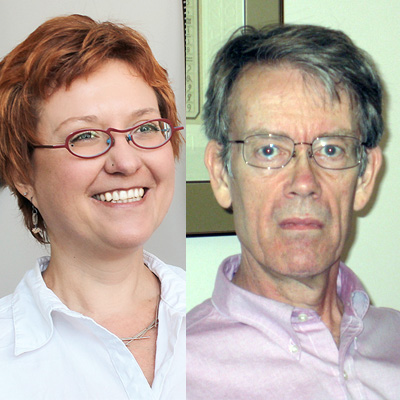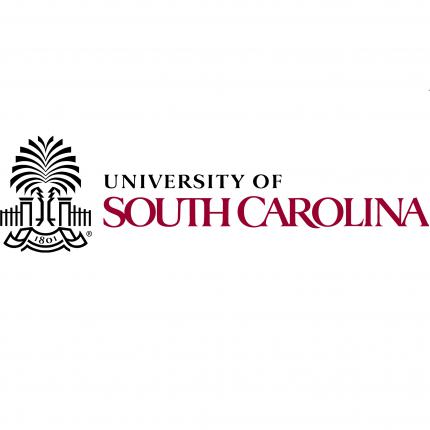Giving a voice to the marginalized communities of South Carolina while engaging participants in the state’s future
It has been said that “Those who do not remember the past are condemned to repeat it.” In light of this all too frequent truth, the challenging social and racial history of the US South is an important history to record, share, and elucidate. Dr. Heidi Rae Cooley, Associate Professor in the School of Visual Art and Design, and Dr. Duncan Buell, Professor in the Department of Computer Science and Engineering at the University of South Carolina, conduct projects that “help citizens know and understand all the history that brought us to this point in time, including the history of those who were left out of the process of decision-making.” With the belief that in order to move forward, we must reconcile past history with the present, their team uses mobile devices, on location, to allow participants to engage with history and achieve an empathic awareness of the impacts of political actions on real people. It is their hope that those who will never truly know what it was like to be affected by political decisions might nonetheless become more aware of what it would have felt like, and furthermore, to use that knowledge to ensure that future political decisions serve all people.
Projects led by Dr. Cooley and Dr. Buell have uncovered the unspoken history of slavery that made possible the construction of South Carolina College, now known as the University of South Carolina, whose historic Horseshoe is the heart of the Columbia campus. In the process, this project documents the stories, artifacts, and events that played a large role in a University history that has in many ways been hidden from view. Future projects hope to give voice to the Ward One community, whose members were displaced during the 1950s through the 1970s. This earlier political act has made possible the University’s continued expansion. Therefore, Cooley and Buell’s work is unique because of its integration of participants that were part of history in the making. Furthermore, their applications are not just a mobile tour guide, nor are they text-based narratives or linear documentary films. Rather, Dr. Cooley and Dr. Buell view those with the app as participants in an exploration of the history, and the paths of exploration can vary from one participant to another or from one experience to the next.
Current research includes:
-
Ghosts of the Horseshoe: The first project completed by Dr. Cooley and Dr. Buell is an iPad application that brings to the mobile screen an unacknowledged history that underpins how University of South Carolina’s original campus came into existence. And it does so on site. The app helps document the history of the University and its relationship to slavery. Specifically, it documents the way in which slaves built the university, quite literally, from the ground up. The app allows students, community members, and visitors to campus to engage with site-specific historical content and learn a truth that is not readily admitted by the institution.
-
Ward One Project: This new project is a mobile application (like the Ghosts project) and an innovative website that will document the project of “urban renewal” that made possible the eviction, displacement, and demolition of a thriving African-American neighborhood in the 1950s-1970s. By gathering artifacts and personal narratives from community members who called the present-day university campus home, Dr. Cooley and Dr. Buell are giving a voice back to the people who were displaced. At the same time, they are educating current students about that history and its relevance to the present.
-
Building a Model: The Ward One project currently under development by Dr. Cooley’s and Dr. Buell’s team will be translatable to campuses across the country. Using their template, other institutions will be able to make a commitment to engaging their communities in restoring the rich histories that have been overlooked, forgotten, or ignored.
Bio
Cooley’s scholarship is committed to pursuing a vital relation between theory and practice. Broadly speaking, she is interested in the articulation of poiesis (creative production), aesthesis (sensory knowing), and ethos (practice of living). In this regard, she writes about the inter-relations among technology, sociality, and living bodies. Her monograph Finding Augusta: Habit and Governance in the Digital Present (Dartmouth College Press 2014)--winner of the Society for Cinema and Media Studies 2015 Anne Friedberg Innovative Scholarship Award (http://www.cmstudies.org/?page=2015_awards)--considers routine practices that define the mobile present. It argues that because digital technologies set places, persons, things, and information in constant motion, habits of locatability and navigation assume decisive social and political importance. As such, Cooley argues that we should attend to the everyday habits of finding places, persons, and information that mobile media encourage and discourage. Augusta App is the book’s digital supplement and is available for download from Apple’s App Store.
Cooley has published in the journal of visual culture, Spectator, and The Object Reader (Routledge 2009), as well as contributed to the online forum Flow (http://flowtv.org/2012/12/habit-change-in-mobile-present/). She also edited and wrote the introduction for a themed issue of the journal of visual culture, titled "Ecologies of Practice" (December 2008). A revised version of the introduction appears in Depletion Design: A Glossary of Network Ecologies (2012). Most recently, Cooley has co-authored two articles with media theorist Nanna Verhoeff (Utrecht University)--with whom she is co-editing along with Heather Zwicker (University of Alberta) a themed issue, “Urban Cartographies,” for Journal of Television and Media Studies. Her five-year collaboration with computer scientist Duncan Buell has resulted in two co-authored articles, as well as a forthcoming essay to appear in the second volume of Debates in the Digital Humanities (ed. Jentery Sayers). The two have co-managed two NEH-funded projects and regularly team-teach a course called “Critical Interactives” (http://calliope.cse.sc.edu/index.html/).
Cooley’s current research project features American pragmatist Charles Sanders Peirce.
Professor Buell's recent work has been in electronic voting systems and in digital humanities. He has been part of a team that is auditing election data in South Carolina and discovering problems in the process that lead to uncounted votes and to the absence of data to support the vote totals certified by the state. In digital humanities, he is co-supervising work on Ward One App, a critical interactive for iPhone about “urban renewal” in Columbia SC and the University of South Carolina’s role in evicting residents of the Ward One neighborhood adjacent to the university, and is engaged in the analysis of First Year English essays for linguistic characteristics and improvement of writing pedagogy.
Professor Buell's past research interests included the algorithms and architectures for performing computations, such as those in discrete mathematics and text/string processing, for which traditional computer architectures oriented toward floating-point computations normally perform at a significantly reduced efficiency. One class of such problems are those computational problems in number theory for which fast integer arithmetic, often multiprecision arithmetic, is necessary. Another broad class of problems are those for which "custom computing machines" were devised. These include bit-oriented computations such as those done in string processing, and image processing computations, for which one often needs substantial parallelism, but for which 8-bit or 12-bit arithmetic is often sufficient accuracy. At IDA/CCS he directed the Splash 2 project building a custom computing machine that used Xilinx FPGAs as the compute elements and whose applications were programmed in VHDL.
Publications
Videos
Awards
2015 Anne Friedberg Innovative Scholarship Award, Society for Cinema and Media Studies
Awarded for Finding Augusta: Habits of Mobility and Governance in the Digital Era (University Press of New England 2014) and Augusta App (mobile application for iPhone)


